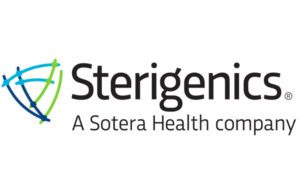 This story has been updated to include information and comments from the state of Illinois.
This story has been updated to include information and comments from the state of Illinois.
Sterigenics and the state of Illinois Environmental Protection Agency have reached a consent agreement to reopen the company’s Willowbrook medical device sterilization plant.
The proposed agreement resolves all of the current litigation between the state attorney general’s office, the DuPage County state attorney’s office and Sterigenics, with no finding of liability or fault by either side and with no imposition of penalties, according to the company. State officials filed the proposed agreement today with DuPage County Circuit Court.
The state EPA ordered the plant closed in February, citing excessive emissions of the sterilant ethylene oxide (EO), which is considered carcinogenic. In June, the state passed a tough new law regulating the discharge of the gas. The plant processed millions of medical devices annually, and its sudden closure caused some device shortages and a push by the FDA to come up with different methods to replace and improve EO sterilization.
Under the terms of the consent agreement, which is subject to court approval, Sterigenics will install additional emission capture and control equipment that will enable the Willowbrook facility to meet the new, stringent standards set by the State of Illinois for sterilization using ethylene oxide. The Illinois EPA said it would have to approve the upgrades before the plant could reopen.
The net effect of the requirements in the proposed consent order will be to reduce the EO emissions from Sterigenics’ Willowbrook facility to no more than 85 pounds per year. This compares with Sterigenics’ reported annual emissions from 2006 to 2018, which ranged from 2,840 pounds to 7,340 pounds per year, according to the state EPA.
Sterigenics previously said that the pollution control measures it wants to add at Willowbrook are consistent with upgrades that it proposed to the Illinois EPA over the past several months and before the agency issued its seal order. The upgrades would allow the facility to comply with the new Illinois law regulating EO emissions and “would establish the Willowbrook facility as the highest emissions control environment” for EO sterilization facilities in the country, Sterigenics said.
Sterigenics has also agreed to fund $300,000 in community projects designed to benefit the environment and the local community, to be developed in coordination with the state. The company previously submitted its permit application to the Illinois EPA for the installation of the new emissions-control equipment.
The new equipment would establish a permanent total enclosure through the use of negative pressure, increase the number of emission control stages and combine existing emissions stacks into one common stack at the facility, according to Sterigenics, which is owned by Sotera Health. Sterigenics would also add a continuous emissions monitoring system, which the company said has not been employed before at any plant that uses ethylene oxide. Preliminary modeling shows that the installation of new emissions controls will further reduce the 0.1% of remaining emissions at the Willowbrook facility to minimal levels, the company said.
Sterigenics has also agreed to reduce EO usage at the Willowbrook facility and to add a combination of continuous emission monitoring, emission stack testing and ambient air monitoring to ensure and to demonstrate that the additional controls are working. The Willowbrook plant must reduce EO emissions to the atmosphere from each exhaust point by at least 99.9 percent, or 0.2 parts per million, under the new state law. The law also requires facilities to conduct annual emissions tests and submit results to the state EPA. An EO facility that fails to meet the reduced emissions requirements must immediately cease operations, according to a statement from Illinois Attorney General Kwame Raoul.
The Sterigenics Willowbrook facility may resume operations if the new controls meet the approval of the Illinois EPA, both parties said.
“The consent decree entered into today should in no way be considered a license for Sterigenics to reopen,” added DuPage County State’s Attorney Robert Berlin. “The decree will govern Sterigenics going forward and in doing so goes above and beyond the most restrictive regulations in the country placed upon businesses that use (EO) in their operations.”
“We are pleased to have reached this agreement, which creates a path for our Willowbrook facility to resume its safe operation and includes no finding of wrongdoing on the company’s part nor the imposition of any financial penalties,” said Sterigenics president Philip Macnabb in a news release. “The state government has gone to great lengths to set new standards for the protection of the public that are more stringent than any other location in the country. While our Willowbrook operations have consistently complied with and outperformed the state’s requirements, we have repeatedly stated our support for evolving regulations and our commitment to enhancing our operations in the interest of protecting public health. We remain committed to abiding by the new regulations established by the state. By resolving this matter, we are one major step closer to resuming the critical work of sterilizing vital medical products and devices in Willowbrook for patients in Illinois and beyond.”
The proposed consent order surpasses the emissions limits contained in the new Illinois law, according to Raoul. “The proposed consent order, combined with the strict regulations in the new law signed last month, will enable the state to act quickly to hold Sterigenics accountable for violating Illinois’ emissions limits,” he added.
Sterigenics would be subject to penalties and contempt of court for violating the consent order’s terms.


